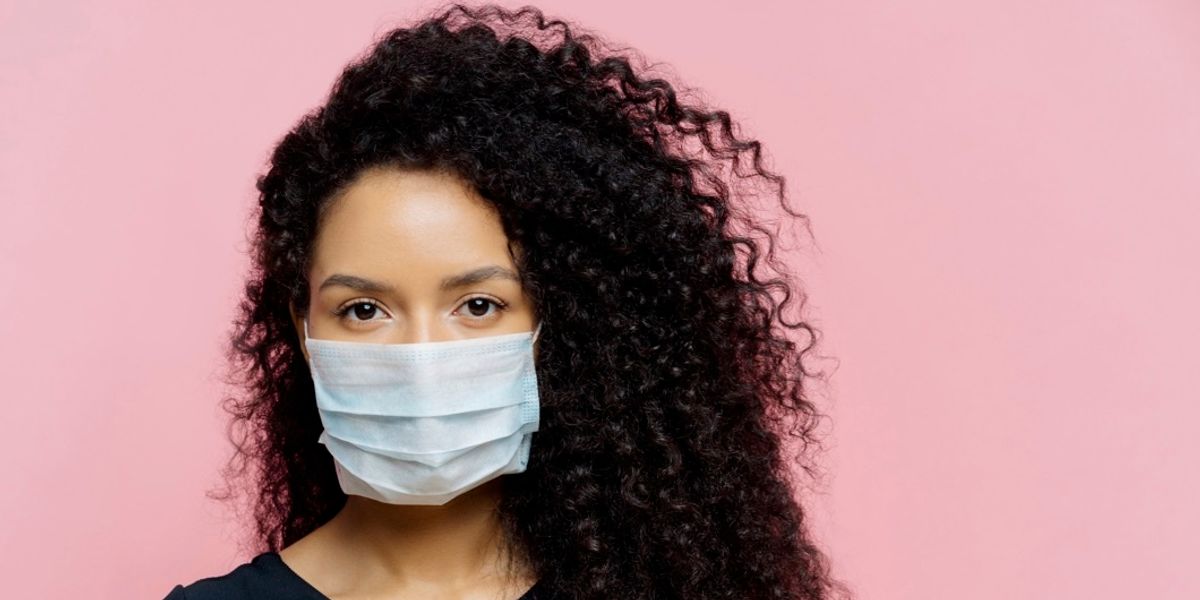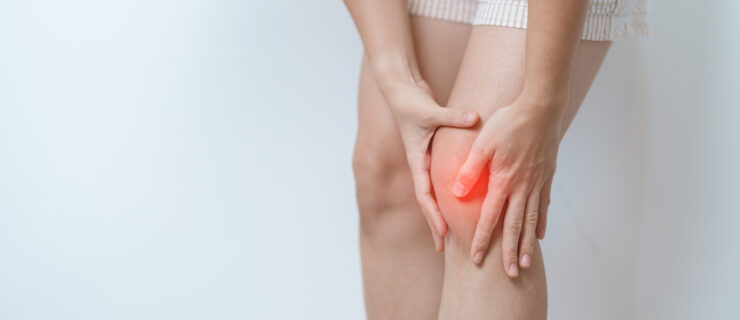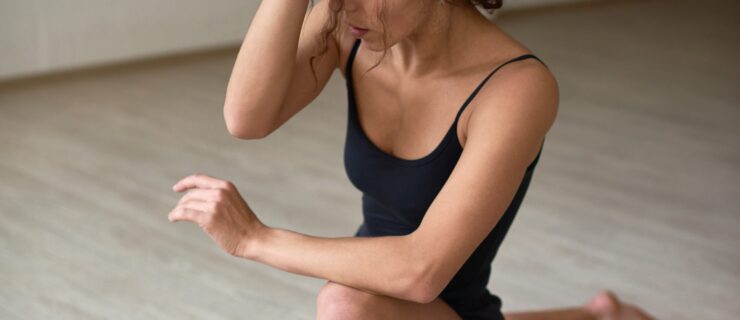The Dancer's Guide to Maskne
Having to wear a mask is a small price to pay to finally be back dancing with partners other than our family members and pets. But we won’t lie: Masks are uncomfortable. If you’ve experienced “maskne”—increased irritation and acne from frequent mask-wearing—you’re not alone. Luckily, dermatologists have quickly become experts on this new dilemma. Dance Spirit spoke to two to get their top tips for mask-wearing dancers.
Make sure your mask fits
“Masks that are too tight or rub the skin too frequently can cause excess irritation and worsen your risk of breaking out,” says Dr. Claire Chang, a board-certified dermatologist in NYC. Plus, the more you have to adjust your mask, the more acne-causing bacteria can transfer onto your mask or face. When it comes to choosing a mask, avoid synthetic fabrics, like nylon and polyester, especially if you have sensitive skin. Chang recommends high-thread count cotton or cotton-blend masks, as they’re hypoallergenic, absorbent, durable, and breathable, and can control moisture buildup between your skin and the mask.
Avoid makeup and other irritants
It’s official: 2020 is the year of au naturel. Both dermatologists strongly advise against wearing makeup under your mask. But if you absolutely must, Chang recommends you only apply it to parts of your face that won’t be covered (hello, dramatic cat-eye), and stick to products that are noncomedogenic and oil-free to prevent clogged pores and acne breakouts. According to the American Academy of Dermatology, mask-wearing can make your skin more sensitive, so
if any harsher products—like scrubs, retinoids, or acne treatments—seem to be irritating your skin more than usual, use them less frequently for now. The one product you shouldn’t skimp on? Sunscreen. Chang says, “Whether you’re exercising outside or dancing close to windows, sun protection is still essential. Use lightweight, oil-free sunscreens to avoid breakouts.”

Bring multiple masks to cycle through your dance day (Getty Images/Sergio Yoneda)
Simplify your skin care
When you start seeing signs of the dreaded maskne, your first response may be to try a bunch of different cleansers, home remedies, and spot treatments to fix it. But the best thing you can do is stick to a gentle cleanser and noncomedogenic moisturizer. According
to Dr. Nava Greenfield, a dermatologist in NYC, a light layer of moisturizer can actually serve as a protective barrier between your skin and a mask, reducing any friction
that could irritate your skin. Chang says, “Choose moisturizers that have hydrating ingredients, like ceramides, and anti-inflam-matory ingredients, like niacinamide and vitamin C.”
Make sure you give the moisturizer a few minutes to be absorbed before donning your mask. When you’re done dancing for the day, Greenfield recommends you wash your face immediately, or use micellar cleansing water to wipe away the oils and bacteria that may have accumulated
under the mask. Other than that, stick to quick rinse-offs or facial wipes if you sweat frequently, as over-washing can strip the skin of its natural oils and cause even more breakouts.
Keep multiple masks handy
The American Academy of Dermatology recommends taking a “mask break” for 15 minutes every four hours. But if you’re working hard in rehearsal, you may want to pause more often to switch to a fresh mask, since, according to Greenfield, “sweat will attract dirt and clog your pores, causing breakouts and irritation.” Always bring multiple masks that you can cycle through during a long dance day, and remember to wash your hands before removing your mask or putting on a new one. When you get home, be sure to wash each mask with a gentle soap or fragrance-free detergent to reduce bacteria buildup.
At the end of the day, maskne is just another form of acne, which means there’s no one cure-all. “If your acne isn’t responding to over-the-counter options or is severe, you should consult your board-certified dermatologist for possible prescription medications or to rule out other skin conditions,” Chang says.




